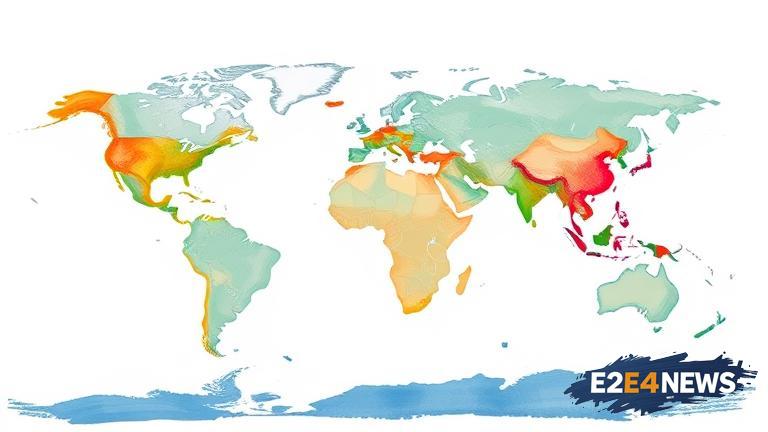The COVID-19 pandemic has had a profound impact on the global economy, with widespread lockdowns, border closures, and supply chain disruptions causing a significant decline in economic activity. As the world begins to emerge from the pandemic, the economic outlook remains uncertain, with many challenges still to be overcome. Rising inflation, driven by increased demand and supply chain disruptions, is a major concern, with many central banks raising interest rates to combat it. Geopolitical tensions, particularly between the US and China, are also having a significant impact on trade and investment. The ongoing conflict in Ukraine has further exacerbated the situation, with sanctions and trade restrictions affecting businesses and consumers around the world. Despite these challenges, there are signs of optimism, with many countries experiencing a strong rebound in economic activity. The US, in particular, has seen a significant increase in economic growth, driven by a combination of fiscal and monetary policy stimulus. However, the recovery is not uniform, with many countries still struggling to regain their pre-pandemic footing. The International Monetary Fund (IMF) has warned that the global economy is facing a ‘long and difficult’ recovery, with many risks still to be navigated. One of the major challenges facing the global economy is the rise of protectionism, with many countries imposing tariffs and trade restrictions in an effort to protect their domestic industries. This has led to a decline in international trade, which has had a significant impact on businesses and consumers around the world. The impact of the pandemic on global supply chains has also been significant, with many companies experiencing disruptions to their operations. The shift to online shopping has accelerated, with many retailers investing heavily in e-commerce platforms. However, this has also created new challenges, particularly in terms of logistics and delivery. The pandemic has also accelerated the trend towards remote work, with many companies adopting flexible working arrangements. This has created new opportunities for businesses and employees, but also raises concerns about productivity and job security. The economic outlook for the coming year is uncertain, with many risks still to be navigated. However, with the right policies and support, it is possible for the global economy to recover and thrive in the post-pandemic world. The key to success will be finding a balance between supporting economic growth and managing the risks associated with inflation and debt. Governments and businesses will need to work together to create a supportive environment for investment and job creation. This will require a combination of fiscal and monetary policy stimulus, as well as investments in education and training to support the development of new skills. The global economy is also likely to be shaped by technological trends, particularly in the areas of artificial intelligence and renewable energy. These trends have the potential to create new opportunities for businesses and employees, but also raise concerns about job displacement and environmental sustainability. Overall, the global economic outlook is complex and challenging, but with the right policies and support, it is possible for the world to navigate the challenges of the post-pandemic era and create a more prosperous and sustainable future for all. The pandemic has also highlighted the importance of global cooperation and coordination, particularly in terms of public health and economic policy. The international community will need to work together to address the challenges posed by the pandemic and create a more resilient and sustainable global economy. This will require a combination of diplomacy, cooperation, and investment in global institutions and infrastructure. The economic outlook for the coming year is uncertain, but with the right policies and support, it is possible for the global economy to recover and thrive in the post-pandemic world.
